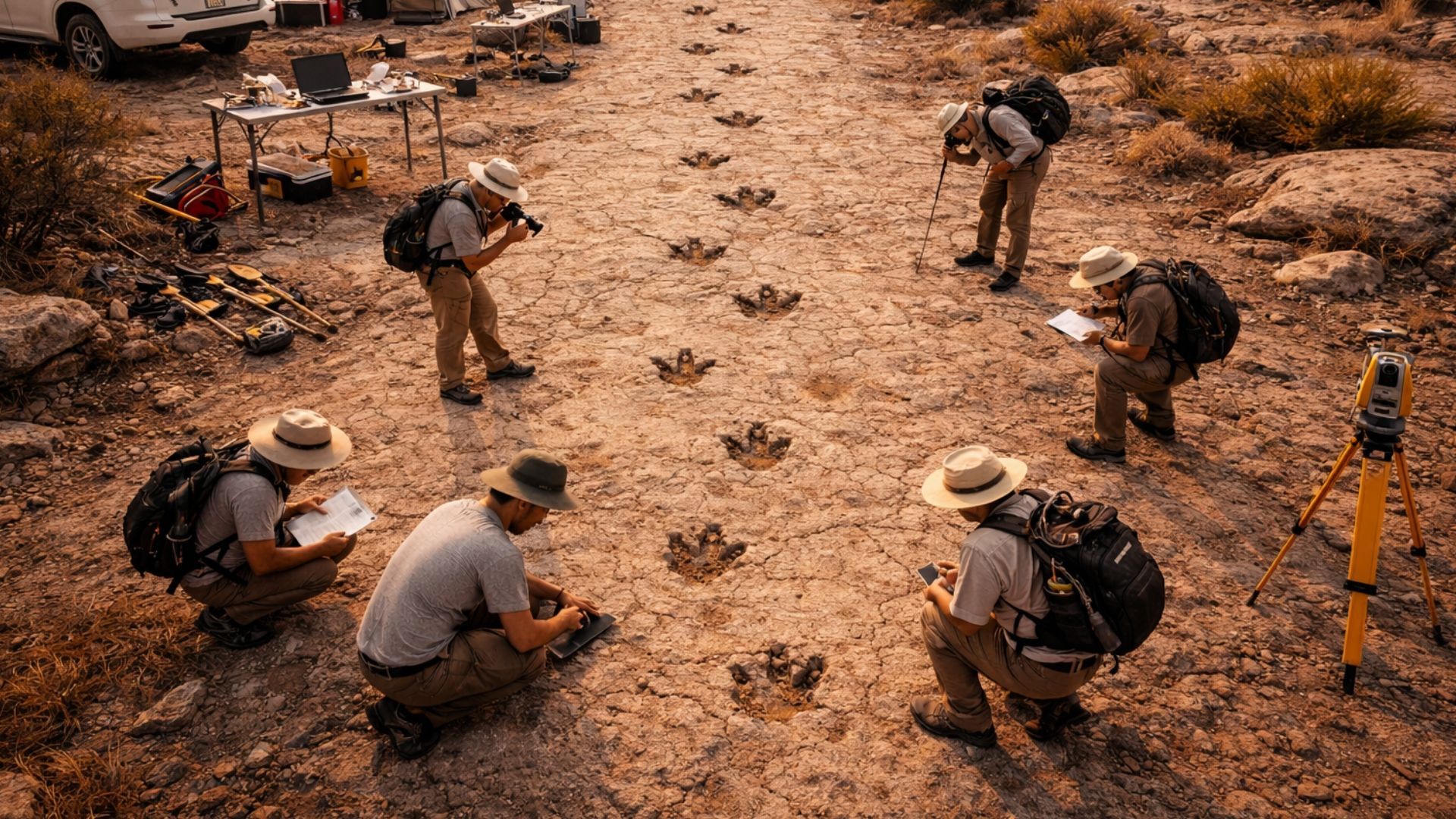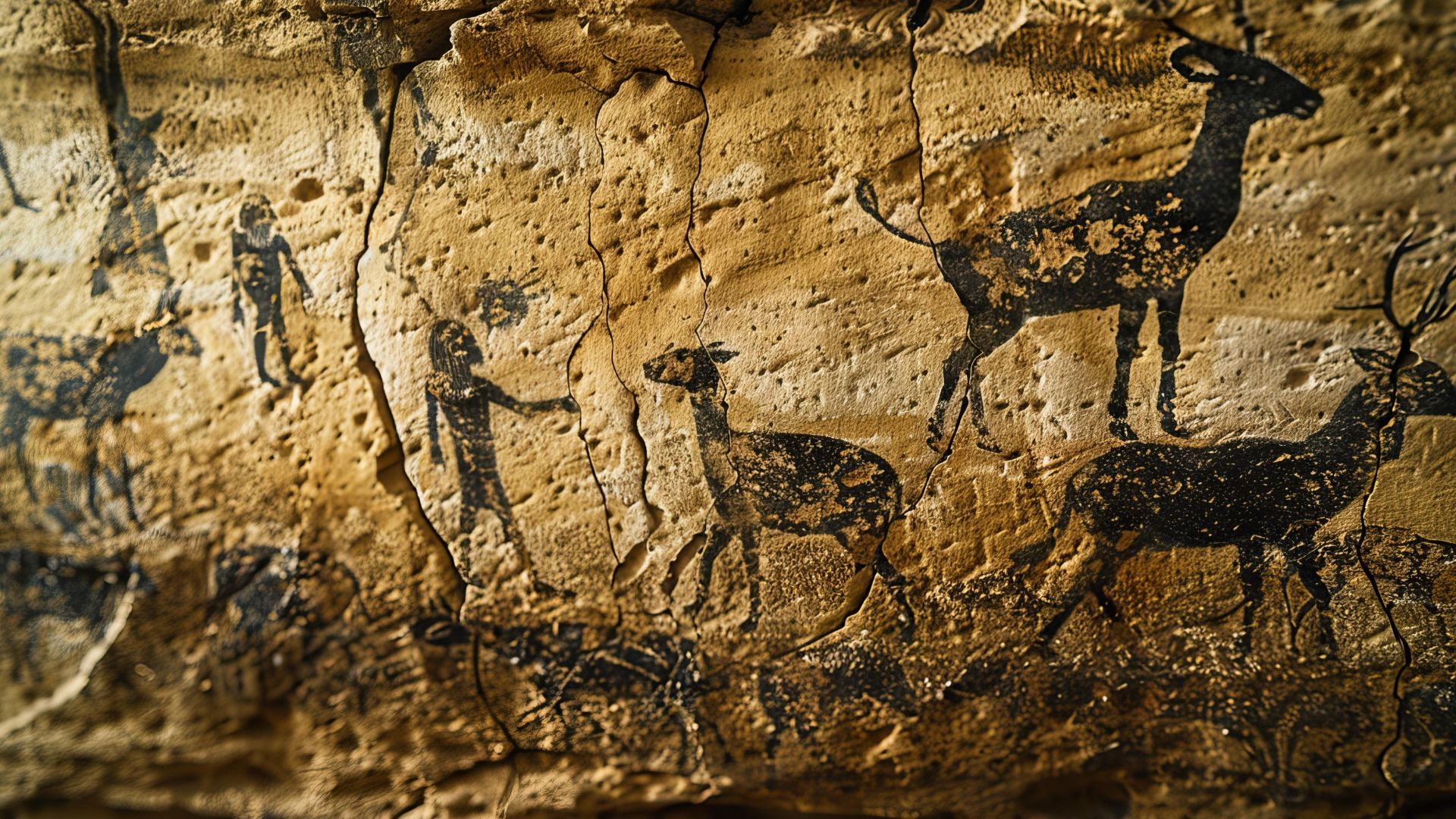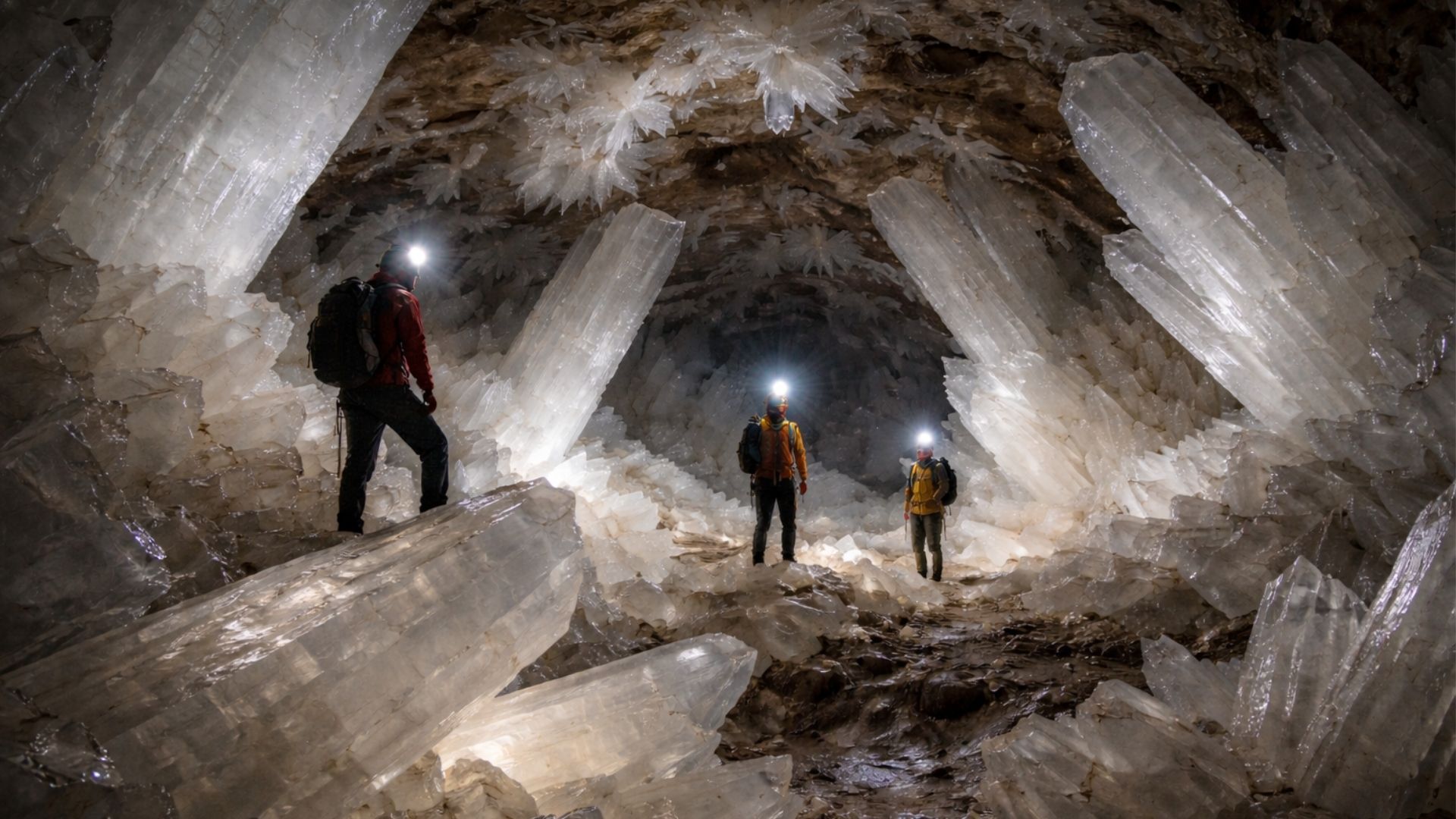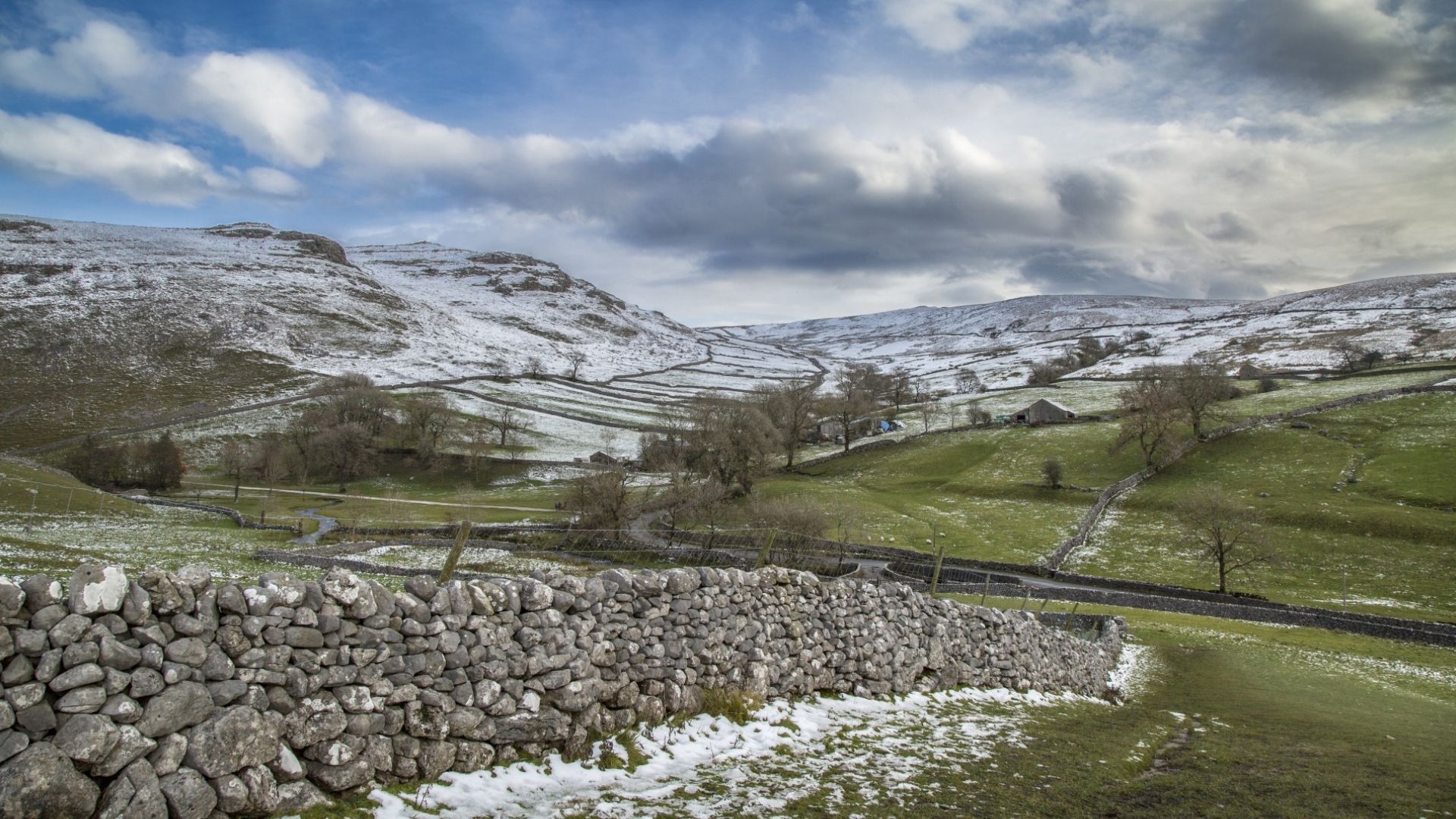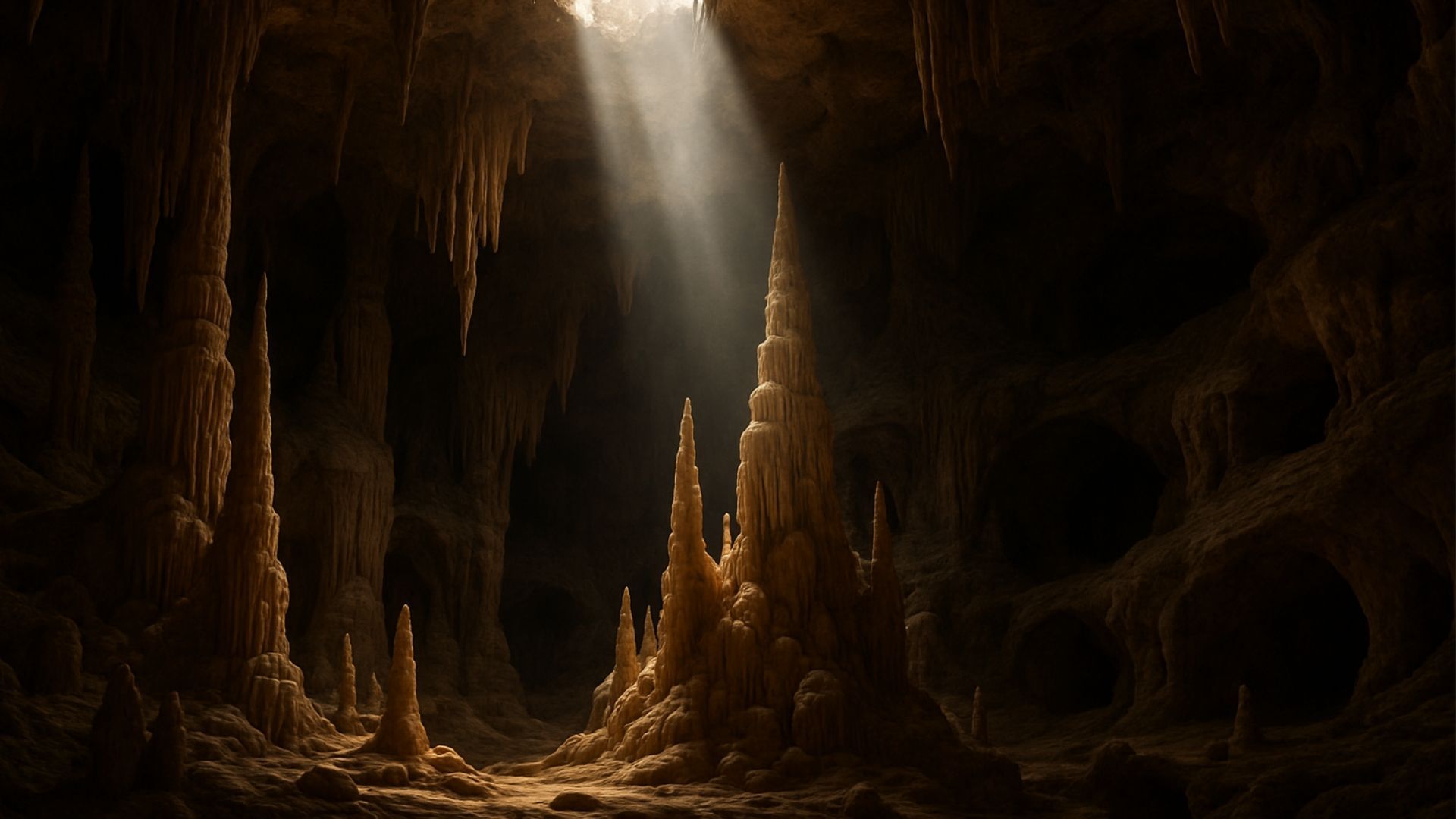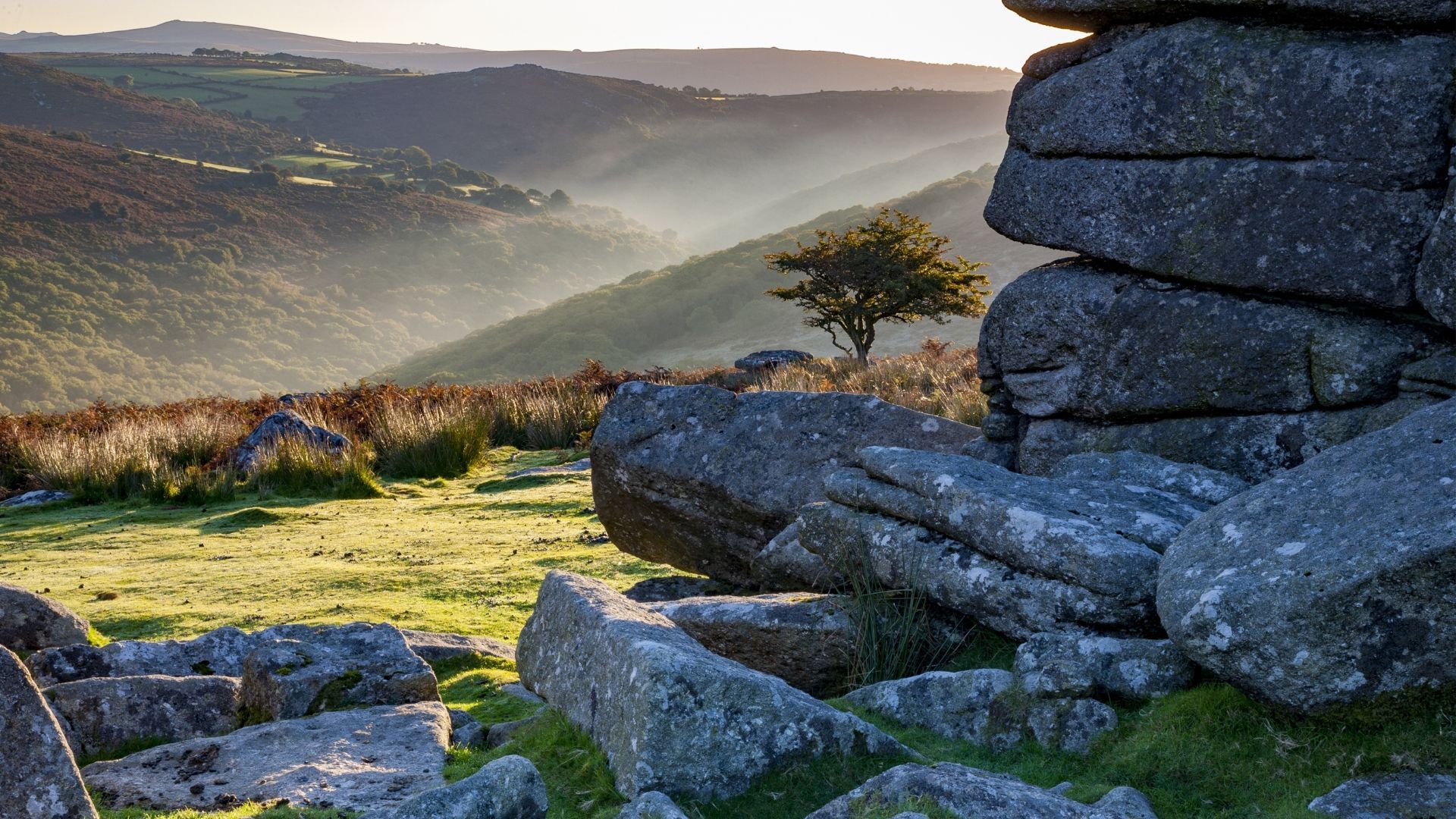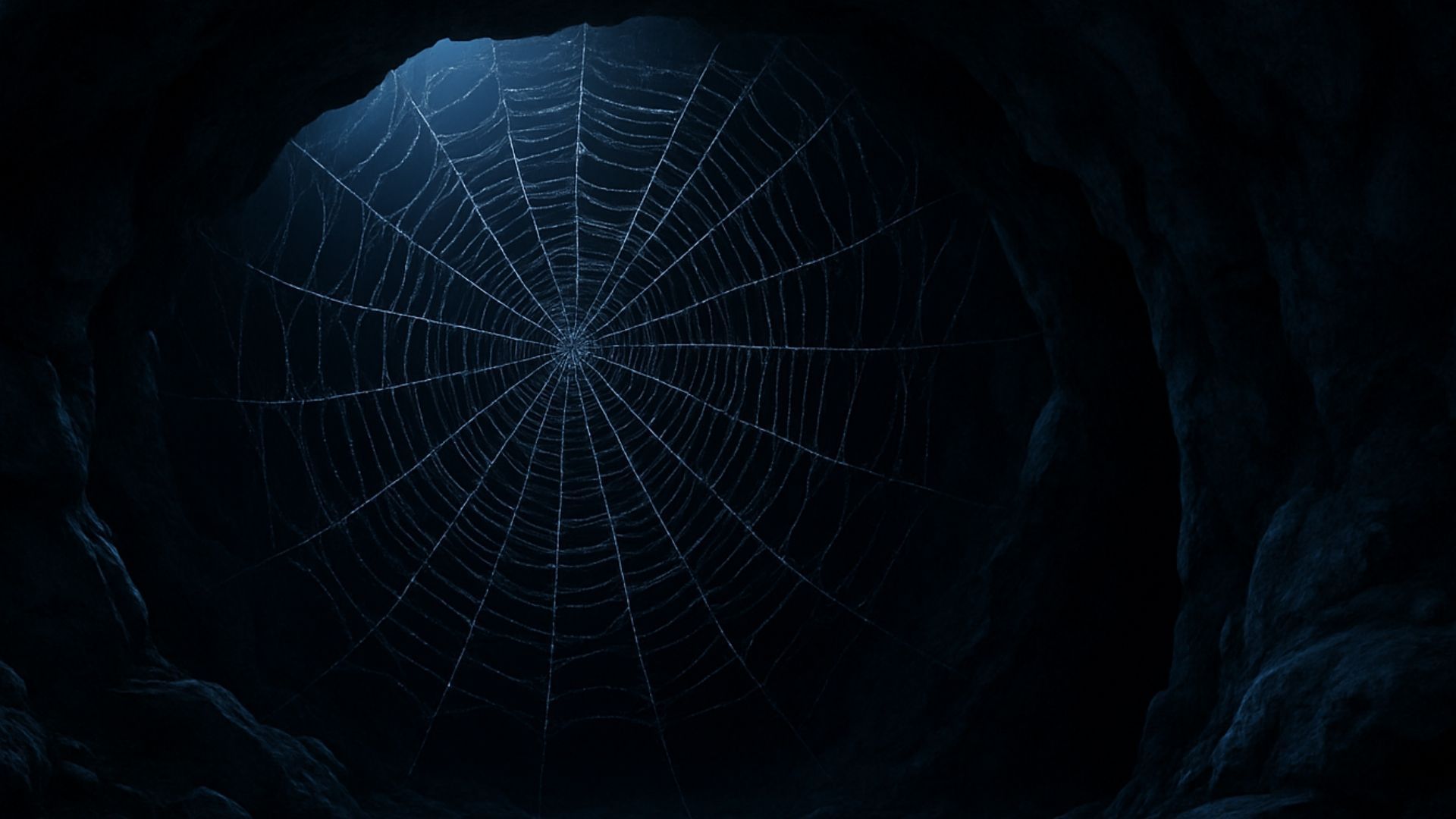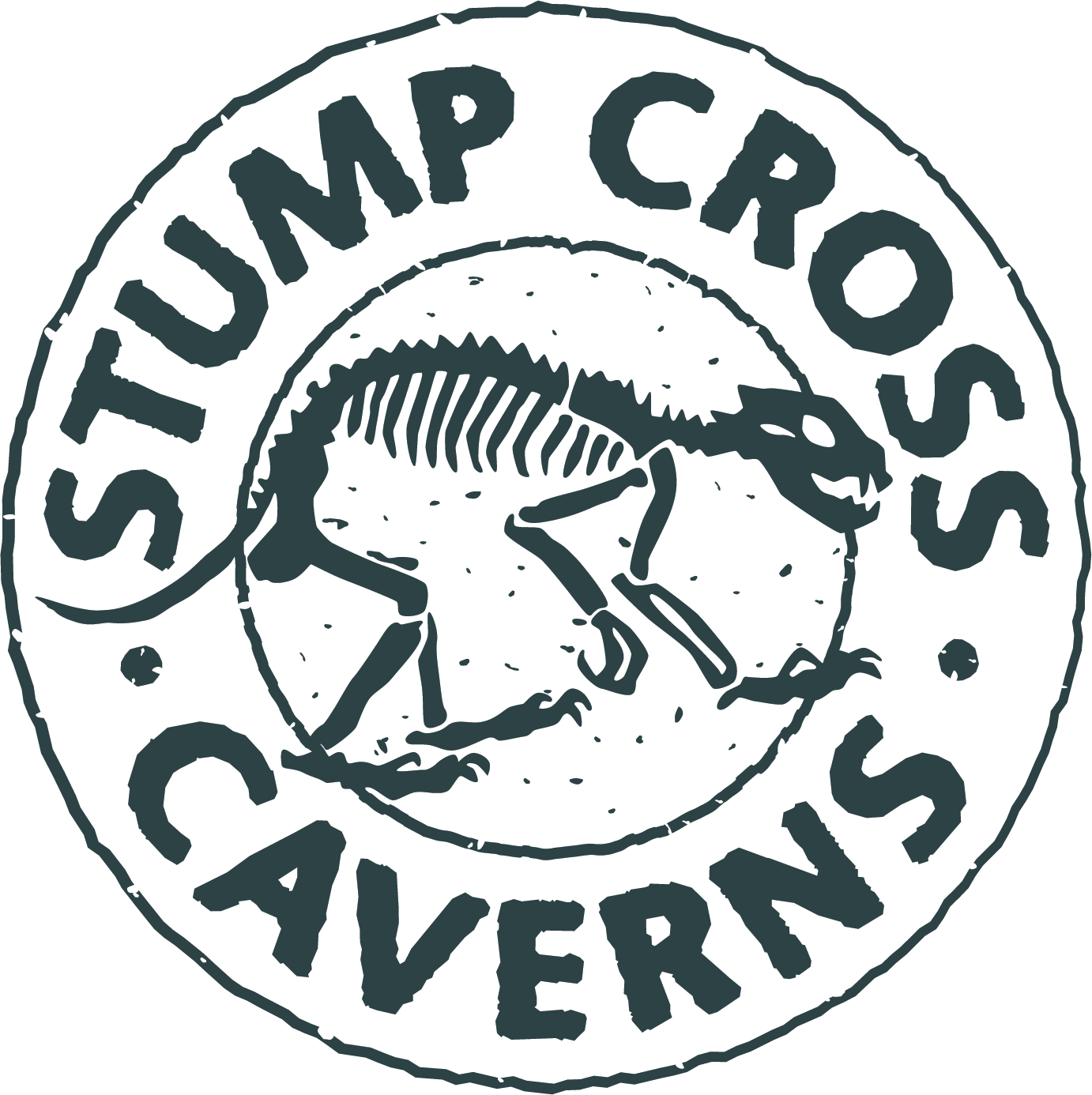Stump Cross Caverns are a system of ancient passages beneath the Yorkshire Dales. Learn how they were discovered – and who discovered them.
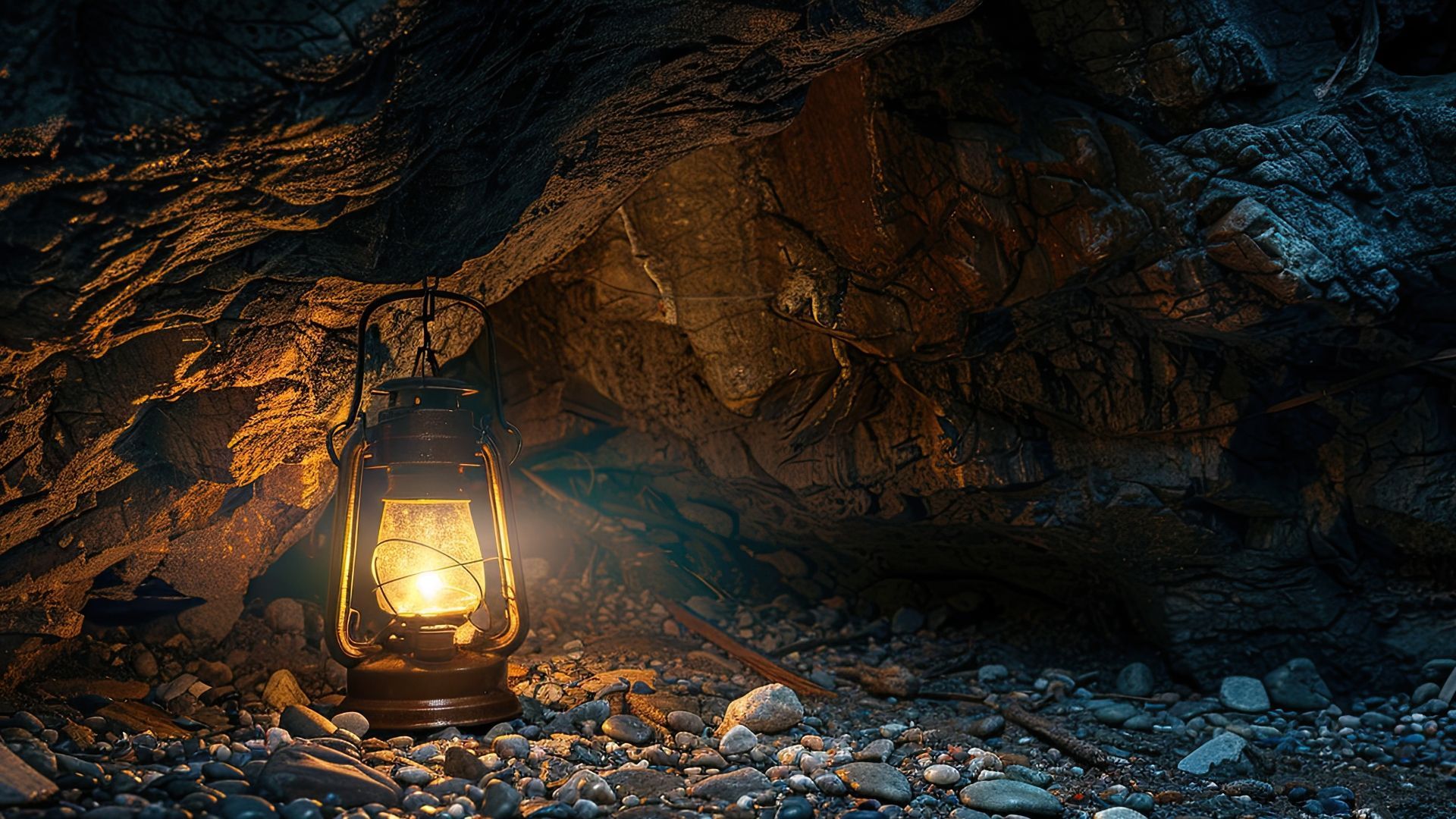
If you travel along the road from Grassington to Pateley Bridge, there's a jewel nestled in the moors that stretch away on both sides. At first glance, you might think it's a farm shop. But it's actually a gateway – a portal into a network of caverns that runs deep, deep beneath the Yorkshire Dales.
Loved by tourists, spelunkers and scientists alike, it's a maze of caves and passageways filled with flowstone, stalagmites, stalactites, columns and other natural features – all known to the scientifically minded as "speleothems".
Visitors go on guided tours armed with torches that bathe the tunnels in ultraviolet light, bringing veins and flecks of minerals into view. The more peckish among them take Mammoth Cream Tea in the Cathedral Cavern. Cavers, helmeted and padded, crawl through its narrower passageways looking for new chambers to explore.
And above ground, there's a range of amenities – a cafe and gift shop bursting with goodies, a private cinema and a "time-out" pod overlooking the moor for snacks and decompression.
But it all looked very different on the day the caves were discovered…
The discovery
Half an hour's walk to the east of the caverns is the village of Greenhow. With a population of around
1,000, the hilltop village's main claim to fame is that Rudyard Kipling's grandfather was the minister at its Methodist Chapel.
For centuries, residents had made a living from lead ore. They dug and dug, looking for the heavy grey substance that was used to make water pipes, bullets and window leading. The dales were bare and stark – but beneath the surface was a veritable wormery of mine shafts and tunnels.
On a raw winter's day in 1860, Mark and William Newbould were following a vein – dig, dig, dig. They dug past deposits of fluorite and baryte in search of grey gold.
Eventually, the spade went through the roof of a natural tunnel threaded through the limestone rock. Continuing with caution, they found a cave passage decked out with stalactites and stalagmites.
What did they feel? Wonder? Perhaps – but it would have been tinged with disappointment. Visitors marvel at the shining columns, created by millennia of raindrops seeping through the Yorkshire soil. But, to the lead miners, it meant one thing: no lead. And no lead meant no bread.
On finding a cave, lead miners would usually clear out any fetching formations and sell them as dirt-cheap ornaments. They'd then use the cave as a dumping ground for waste material.
But the Newboulds saw the cave with different eyes. They had moved to Greenhow from Derbyshire, where the four caves around Castleton were bringing in business. Could they turn these caves into an attraction too?
So they left the formations alone and soon negotiated a lease with the landowner Thomas Yorke. Yorke charged one shilling per visit and shrewdly had visitors change into cave-friendly clothing in his inn across the way.
Back then, the caverns were a health and safety inspector's nightmare. Steps down weren't installed until later, so the first visitors would have descended carrying lit candles – and once inside, would have had to bend and crawl through some sections.
Over time, the customer experience was improved by the installation of steps and the lowering of the passage level.
It's been estimated that the Newboulds discovered around 900 metres of caverns. This included sections that can still be visited today.
There's the Butcher's Shop, with its bulky stalactites hanging like meat in a butcher's window. And there's the Wolverine Cave – so-called because the skull of a wolverine was found there – with its gleaming speleothems, orange crystals and rimstone pools.
But there was still more to be discovered.
The next breakthrough
Fast forward to Easter 1922. Cambridge medical student Christopher Francis Drake Long and four of his fellow students came with a mission: to dig out the mud in "the Clay Level" and see what lay beyond.
They dug for nearly 168 hours and opened up nearly 30 metres of the passage. They explored for another 450 metres, uncovering masses of decorations.
Long came back for a solo mission in June of that year and got as far as the underground stream. This expedition led him as far as a sump – but without his (and his colleagues') tenacity, the lower levels would never have been reached.
A trip to Heaven and Hell
Ever since the caves were opened to the public, local cavers would crawl into tight spaces, seeing if they could find new passages.
In the 1940s, the Craven Pothole Club removed a large flake of rock and found a series of passages that they nicknamed Heaven and Hell.
Heaven consisted of the upper passages and chambers, full of decorations. Below ran Hell – a low, tight, jagged tunnel which is strictly for hardcore cavers only.
Reindeer Cavern and beyond
In 1955, members of the same group tackled a boulder choke at the back of a chamber. They broke through to a room that boasted not only an abundance of cave decorations but also the reindeer bones that gave it its name.
A decade later, members of the Yorkshire Underground Research Team dug through a choke in Reindeer Cavern that took them through to Link Chamber – another feast for the eyes.
It would be remiss not to mention Mongo Gill Hole. While you can't get from there to the Stump Cross network, it's very much part of the system – discovered in 1956, then extended in 1957, 1958 and 1964.
Finally, a well-decorated new passage was entered by Geoffrey Workman in 1996. Workman is an integral part of Stump Cross history – in 1963 he spent a record-breaking 105 days down in the caverns.
The system of caverns that we know today is the combined achievement of miners, cavers and scientists. Here at Stump Cross, we salute them all!
Looking for a fun,
educational indoor activity in Yorkshire? Then why not visit Stump Cross Caverns?
Book your tickets today.

